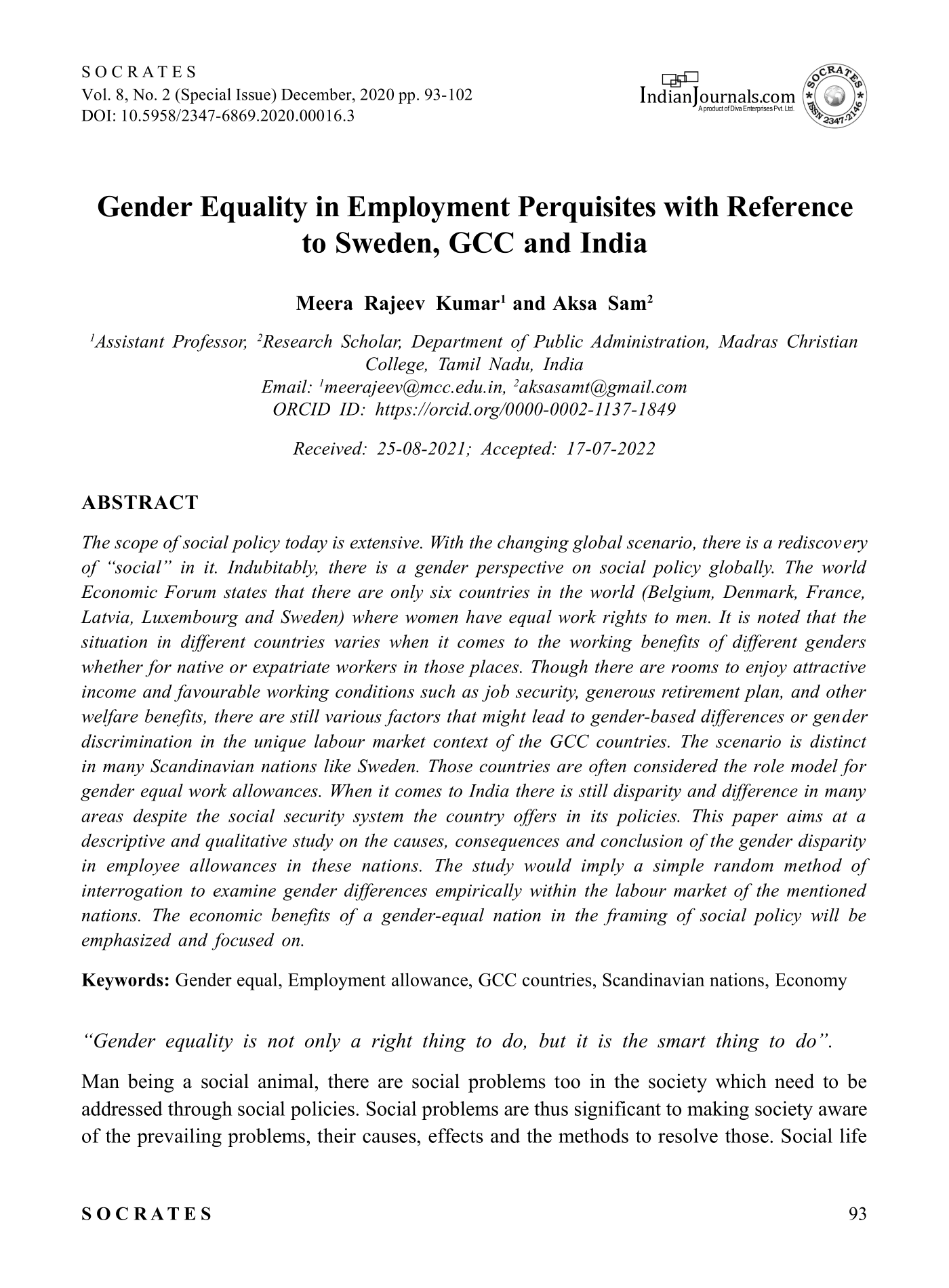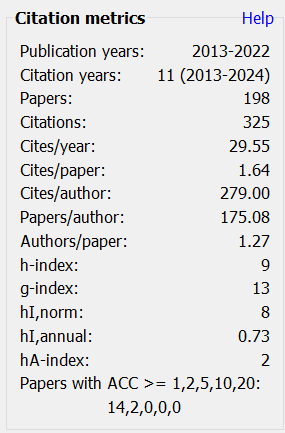Gender Equality in Employment Perquisites with Reference to Sweden, GCC and India
DOI:
https://doi.org/10.5958/2347-6869.2020.00016.3Keywords:
gender equality, employment allowance, GCC countries, Scandinavian nations, economyAbstract
The scope of social policy today is extensive. With the changing global scenario, there is a rediscovery of “social” in it. Indubitably, there is a gender perspective on social policy globally. The world Economic Forum states that there are only six countries in the world (Belgium, Denmark, France, Latvia, Luxembourg and Sweden) where women have equal work rights to men. It is noted that the situation in different countries varies when it comes to the working benefits of different genders whether for native or expatriate workers in those places. Though there are rooms to enjoy attractive income and favourable working conditions such as job security, generous retirement plan, and other welfare benefits, there are still various factors that might lead to gender-based differences or gender discrimination in the unique labour market context of the GCC countries. The scenario is distinct in many Scandinavian nations like Sweden. Those countries are often considered the role model for gender equal work allowances. When it comes to India there is still disparity and difference in many areas despite the social security system the country offers in its policies. This paper aims at a descriptive and qualitative study on the causes, consequences and conclusion of the gender disparity in employee allowances in these nations. The study would imply a simple random method of interrogation to examine gender differences empirically within the labour market of the mentioned nations. The economic benefits of a gender-equal nation in the framing of social policy will be emphasized and focused on.
Downloads
Metrics
References
Directorate general for internal policies, (1995) The Policy on Gender Equality in Sweden, pages 5-6
Directorate general for internal policies, (2014) The Situation of Women in the Gulf States, pages 16-39
https://www.europarl.europa.eu/RegData/etudes/STUD/2015/510011/IPOL_STU(2015)510011_EN.pdf
https://www.intechopen.com/books/public-economics-and-finance/social-policy-and-the-welfare-state https://www.oecd.org/els/emp/last-mile-longest-gender-nordic-countries-brief.pdf
https://www.researchgate.net/publication/277089950_Gender-based_differences_in_employment_
conditions_of_local_and_expatriate_workers_in_the_GCC_context Nordic council of ministers, (2019). The Nordic Gender Effect at Work, pages 10-56

Downloads
Published
How to Cite
Issue
Section
Categories
License
Copyright (c) 2022 Dr. Meera Rajeev Kumar, Aksa Sam (Author)

This work is licensed under a Creative Commons Attribution-NonCommercial 4.0 International License.
Revised Copyright/CC license that applies to all the articles published after 05-02-2017
Attribution-NonCommercial 4.0 International (CC BY-NC 4.0)

Copyright/CC license that applies to all the articles published before 05-02-2017
Attribution-Non Commercial-No Derivatives 4.0 International (CC BY-NC-ND 4.0)

Author(s) will retain all the right except commercial and re-publishing rights. In the case of re-publishing, they will have to obtain written permission from the journal. Additional licensing agreements (Creative Commons licenses) grants rights to readers to copy, distribute, display and perform the work as long as you give the original author(s) credit, they can not use the works for commercial purposes and are not allowed to alter, transform, or build upon the work. For any reuse or distribution, readers and users must make clear to others the license terms of this work. Any of these conditions can be waived if you get permission from the copyright holders. Nothing in this license impairs or restricts the authors’ rights. To view a copy of this license, visit http://creativecommons.org/licenses/by-nc-nd/4.0/ or send a letter to Creative Commons, 171 Second Street, Suite 300, San Francisco, California, 94105, USA.
Research Papers published in SOCRATES are licensed under an Attribution-NonCommercial-NoDerivatives 4.0 International (CC BY-NC-ND 4.0)
















